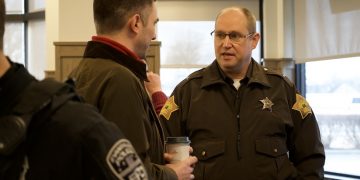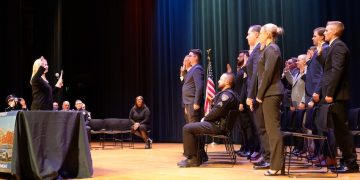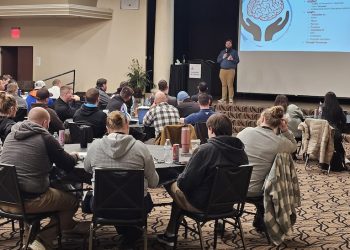Indianapolis, Indiana – $100,000 grant through the African American Legacy Fund of Indianapolis, a donor-advised fund of the Central Indiana Community Foundation for supporting wealth creation and preservation in Black communities.
“The goal is really to empower Black institutions to be a solution within our community,” said Marshawn Wolley, grants director.
The grant is open to Black-led, governed, and focused 501(c)3 organizations, who are looking to address wealth-building and preservation activities in Black neighborhoods, like Martindale-Brightwood and Riverside for example. “Wealth preservation involves looking at homes and housing. What we’re trying to do is basically keep people in their homes, or get people into their homes, in particularly in areas that might be gentrifying,” he said. “That’s going to look like home ownership repair, maybe paying taxes, or even to get people into those neighborhoods, down payment assistance.”
“On the homeownership strategy, what we’re really trying to do is engage Black neighborhoods,” he said. “Martindale-Brightwood, for example, they have a high homeownership rate there, but we also can appreciate that maybe there could be a desire to do home ownership repair, things of that nature.”
“With Riverside area, we’re certainly seeing a lot of development, which is always good,” he said. “You always want to see development in communities, but you never want to see the displacement, which is what people really think about with respect to gentrification.”
According to Wolley, the goal is to help provide resources and support for Black homeowners as these communities continue to grow and evolve.
Another element of the grant is looking to address financial literacy or wealth creation. “On the wealth creation side, we’re looking at someone that can help us with individual development accounts, and we’re really focused on 7th and 8th graders,” said Wolley. “We want to do financial literacy and really focus on a two-generation approach with both the young person and the family, basically fund an account that they have decisions they can make when they’re 18, maybe go to college, maybe start a business, so that they can be empowered.”
Per AALFI, applicants for the grant must present a proposal that includes a project narrative describing the approach to the following:
• Developing community input on the program
• An outreach plan including potential grassroots partners
• Identification and administrative costs for the program
• Key staff that would administer the program or strategy
• Data collection and reporting strategy
“We’re also trying to make sure that these organizations really have the capacity to deliver, particularly on the data side, on just making sure that the program is effective,” Wolley said. “We want to understand if this works. If it works, great. If it doesn’t work, we want to understand that too, but the real goal is to try and have some impact.”
The deadline is October 15.




















































































